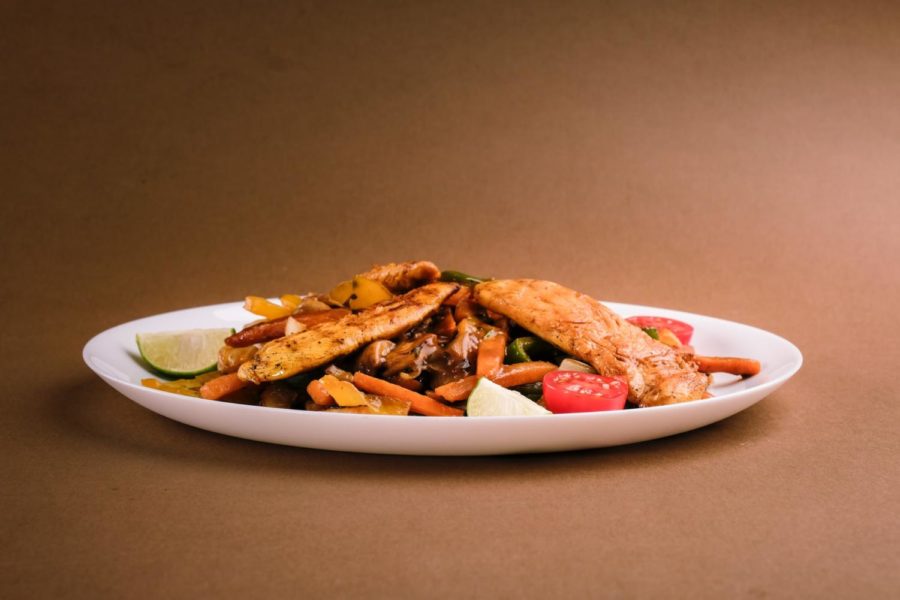Editorial: Plant-based meat is not going away
April 13, 2021
What happened to all those horse and buggy craftsmen? Where did they all go?
People of the 1800s would have been silly to blow off the horse-drawn carriage or wagon as unimportant to the growth of America. But given what we know now, they would have been sillier to blow off the opportunity to invest in steel production, which ultimately enabled mass-produced cars to completely replace the horse-drawn carriage.
What did people of the 1800s think about automobiles compared to horses and carriages? Perhaps they thought cars would be a luxury, made for the few that could afford them. Maybe there were concerns about reliability or maintainability. Rural folks might have opposed automobiles because they were made in cities.
Whatever the reason, there was certainly opposition to the automobile. That’s expected. It’s in our nature to oppose change. It’s especially hard to fault the buggy or carriage craftsman for hoping cars failed commercially.
Fast forward to today. Plant-based meats have made tremendous strides in replicating the taste, smell and texture of animal muscle. If it hasn’t happened already, there will come a time when we are unable to tell the difference between the two.
What then?
What will become of the plant-based meat market? More importantly for Iowa, though: what will become of the animal agriculture industry?
There are a number of reasons people will switch from animal meat to plant meat. Some people will cite factory farming and animal welfare. Others will switch for environmental concerns. These reasons will represent a minority of people and will have little effect on the animal agriculture industry, as many of these people already abstain from consuming animal products.
The real shock will come when plant-based meats, having mimicked the taste, smell and texture of real meat beyond distinction, are cheaper and more accessible than their animal-based counterparts.
That is a when, not an if.
Animals are calorically inefficient. Intensively producing cattle gains one pound of body weight for every six pounds of feed consumed. Pigs and chickens are better at around 3:1 and 2:1, respectively, but ultimately, that means animals turn the food they eat into less food.
That makes a lot of sense, though, right? Energy is transferred from the sun to plants to animals to us, but there is an associated loss at every level. Cut out one level, and efficiency improves.
Look at food production in terms of land required. There are 654 million acres in the U.S. dedicated to raising livestock. Think of the pastures, meadows and rangeland that livestock are raised on. Close to 127.4 million acres are dedicated to growing food to feed those animals. Think of the corn and soybean fields all across Iowa and the rest of the Midwest. There are 77.3 million acres dedicated to growing our food. Think of those same corn and soybean fields but also tomato farms and apple orchards.
Compare 781.4 million acres for meat production to 77.3 million acres for all other food. Unless you eat 10 times the amount of meat as other foods, that is a disproportionate amount of resources needed to produce one part of your diet.
Plant-based meats will eliminate that discrepancy, and subsequently, they will eliminate the added cost. Scientists are quickly developing efficient and effective ways to mass produce plant-based meat. These methods will be quicker and cheaper than anything farms could hope to accomplish with livestock. Plant-based meats will have longer shelf lives and could eventually be tailored to customer requests.
Again, it’s not a matter of if, but when plant-based meats replace real meat. Will there be concerns about this new form of meat? Absolutely! But if you want animal meat to stick around a little longer, don’t mention your concerns out loud. The moment you do, some company will make it their goal to eliminate that concern, and they will dedicate the resources needed to do it.
Food safety? Hormones? Appearance? They’re working on it.
Will people hold out on principle? Yes. Those people existed with the horse and buggy, too. It can only last so long. How many people do you still see riding around on principle?
What are farmers to do when this switch occurs? A small fraction might survive on the slightly increased demand for human food. Again, though, the efficiency gains won’t allow the majority of farmers to make such a switch.
Iowans need a plan. The economics of plant-based meat will be enough to cripple the state’s economy, let alone the other reasons people will switch. The world is changing, and it doesn’t care if plant-based meat causes your family farm to go bankrupt or if it puts hundreds of workers out of a job at a packing plant. American capitalism is cruel and relentless. Entire industries have been eliminated and replaced before. Don’t think agriculture is safe.







